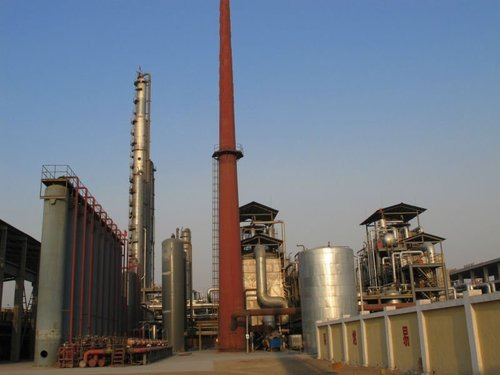Volatile organic compounds (VOCs) Treatment

Adsorption Technique intended for Gas Purification
Along with the widespread make use of of chemical products in the market, more and even more organic pollutants enter the atmosphere, generally low-boiling, volatile organic and natural compounds(VOCs). These gas enter the ambiance and can trigger irritation to the particular human eye, nasal area and respiratory program, and damage to be able to the internal organs.
�
At found, a lot more mature approaches for treating VOC gas are adsorbent, desorption, and catalytic combustion. The method offers high purification productivity, simple operation plus wide application collection.
Sunresin has used the resin intended for Separation and recycling of low and medium VOCs, including: alkanes, halogenated hydrocarbons, aromatic hydrocarbons, low-carbon alcohols, ketones, esters, and other organic and natural matters.
�
Resin adsorption technology with regard to VOCs treatment:
�
The waste gasoline resin adsorption technology is mainly used for non-polar or weakly polar unstable organic molecules. That adopts an especially researched and created macroporous polymer adsorption resin with consistent pore size, high specific area in addition to high strength. By utilizing the non-polar adsorption and intermolecular forces between the inner skeleton molecules involving the resin plus the volatile organic and natural molecules, the infiltration resin performs highly selective adsorption for the non-polar and weakly polar molecular groupings in the waste materials gas, in buy to achieve the purpose of accurate adsorption and petrol emission compliances.
�
�
Advantages regarding resin adsorption in�VOCs treatment compared to be able to traditional adsorption strategies:
�
Flexibility: �adaptation to different sectors and different devices from small tools, skid-mounted equipment, to waste gas remedy system. Flexible co-operation to satisfy emission specifications.
�
Strength: �regular spherical particles using acid, alkali and high-temperature resistance, over 2000 regeneration periods.
�
Purity: �Synthetic styrene structure that has no material impurities, preventing catalytic polymerization or combustion of unsaturated organics in pores.
�
Efficacy: �Over 99. 5% removal charge for non-polar and weakly polar VOCs, for emission compliance.
�
Security: �Good hydrophobicity. Thanks to the own water content material, no need with regard to dry adsorption, steering clear of sustained heating expected to adsorption exotherm.
�
Sustainability: �Longer life cycle, no need for overall replacement, simply no solid waste generation. Annual replenish around 5%.

�
�
Type of volatile gases suitable for resin adsorption technology:
�
The plant adsorption technology is definitely suitable for just about all non-polar solvent, like alkanes, alcohol ethers, chlorinated hydrocarbons, ketones, aromatic hydrocarbons, esters, and organic amines.
�
�
Industries which may benefit coming from resin adsorption for VOCs treatment:
�
1. Pharmaceutical Chemical compounds
2. Pharmaceutical preparations
3. what are the 3 stages of wastewater treatment . Tail fuel from H2O2 creation
5. Chloride Business
